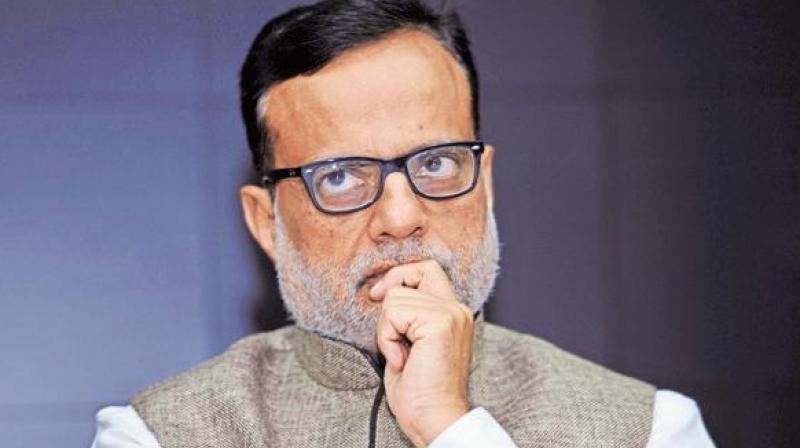India ready for GST, anti-profiteering rules soon: Hasmukh Adhia
GST will unify India's $2-trillion economy and 1.3 billion people into a single market.

New Delhi: India is ready to launch the Goods and Services Tax (GST) on July 1, the official steering the process told Reuters, saying the technology that will drive it is robust and dismissing fears the tax is too complicated.
Hasmukh Adhia, revenue secretary at the Finance Ministry, also said rules would be issued "soon" to deter unscrupulous businesses from exploiting the tax reform to gouge customers.
The biggest tax reform in India's 70-year history as an independent nation would, overnight, unify its $2-trillion economy and 1.3 billion people into a single market, tearing down trade barriers between more than 30 states and territories.
It would also require firms to file at least three online tax returns monthly into the GST Network, a massive IT back-end that will process up to 5 billion invoices a month.
The compliance burden and the tax's complex structure - it has four main rates ranging from 5 to 28 percent - have sparked fears of initial chaos.
In particular, businesses worry that they will struggle to reconcile invoices, blocking the flow of tax credits down supply chains, forcing them to commit time and effort to resolving disputes and reworking budgets.
Adhia, viewed as close to Prime Minister Narendra Modi, dismissed those fears outright and ruled out a delay to a reform that has been more than a decade in the making.
"Everything is ready. We will roll out on July 1," he said in an interview at his office in North Block, a sandstone edifice in the heart of New Delhi dating from the British colonial era.
Moving the goalposts
The reform represents an unprecedented exercise in fiscal federalism. A GST Council that brings together the federal and state governments has met 16 times to thrash out how the tax will work. It meets again on Sunday.
The tax rates for goods and services were only worked out in recent weeks and, at the council's meeting last weekend, several were amended following complaints by businesses.
Still, Adhia said, the multi-rate structure is far simpler than India's existing federal and state taxes - even if he would have preferred a flatter structure.
"This is a great step for simplification - although not the ideal GST that we should have," he said. "It is a technological marvel, as well as a fiscal marvel."
Progressive tax
The multi-rate structure of the GST exempts or imposes a low rate of tax on essential items, while the top rate of 28 percent applies to items such as consumer durables.
Adhia said the GST would be reviewed on an ongoing basis, adding that he would like to see the top rate reduced in future.
"I'm not at all happy with my 28 percent slab. It's a very odd number. One should try to bring it down," he said.
Where the headline rate of tax goes up under GST, the government will be vigilant in seeking to prevent profiteering. "We will come out with our anti-profiteering rules soon," Adhia said, without elaborating.
He dismissed speculation that the GST Network might crash, or data security be compromised, after launch.
"We have a contingency plan for everything - don't worry," he said. "Every angle is secure. It is the best system."
Adhia said he expected the GST to overcome initial hiccoughs and help businesses become more efficient over time, by cutting logistics and inventory costs, freeing them to invest and grow.
"The economy will become more efficient and we should see greater benefits coming to everybody," he said.

